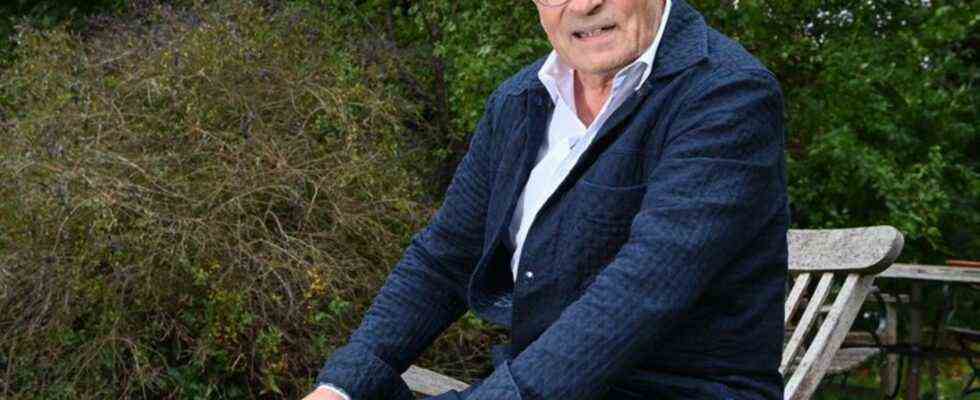A new film by Volker Schlöndorff is coming on the fringes of the climate summit. A conversation about young voters, water bottles and the question of what he’s been doing differently since he met a certain person.
Volker Schlöndorff (82) is one of the most successful German directors. For his new film he traveled to West Africa with the agronomist Tony Rinaudo.
The “Waldmacher” documentation will also be discussed on the fringes of the climate summit in Scotland (October 31 to November 12), at the Global Landscapes Forum. A phone call in Potsdam.
Question: Mr. Schlöndorff, how do you feel about climate change?
Answer: Tony Rinaudo taught me to look a little more hopefully into the world. He is convinced that change is possible, that nothing is lost, that we can still do a great deal well. And after three years of working with him, I have to say: he’s right.
Question: But even a new federal government will still have to show that. How do you actually rate the result of the federal election?
Answer: Also positive, especially with a view to possible measures against climate change. The mentality of humanity must be changed. And it’s nice that there is a spirit of optimism, even among the boys, about whom it is always said that they are so apolitical. You may be apolitical in the ideological sense, thank God. But they are also very committed.
Question: Because you address young people: Have you ever been to a “Fridays for Future” demo yourself?
Answer: No, I wasn’t (laughs). My friend Jim Rakete was there for me, he filmed it all very well. I don’t know if you saw his film. I could never have been that close.
Question: You have now made a film about Rinaudo. He had an idea how to grow trees again in dry areas. Namely by using roots that are already in the ground and cutting back other plants for them. What kind of person is that?
Answer: As a young man he and his wife left Australia for Africa because he had read a book about the misery of the people. And that’s where he wanted to help. And then the two of them arrived there like two hippies – they had studied agronomy, had a child under their belt and they gave birth to three more in the village of the Republic of Niger. For the first time you have lived with people for twenty years. You speak the language fluently and have started figuring out what can be changed. And always with a good mood and charisma, with wit and humility, adventurous like Don Quixote and with deep piety like a missionary.
Question: Missionary and Don Quixote sounds interesting. Is there anything that you have been doing differently since you’ve known each other?
Answer: Tony Rinaudo boils the water for the next day in his hotel room every evening. Because he doesn’t want to carry around plastic bottles or artificial water. I haven’t got that far yet. But I use the light switches much more diligently than before.
Question: The film will now be presented in Glasgow in early November.
Answer: yes. All of this has happened somewhat surprisingly in the past few weeks. I am of course very happy because that is exactly the target audience. It’s a film that tries to convince. But you have to do that mainly with politicians and activists.
Question: When you talk about persuasion: what message do you want to convey to people?
Answer: Another view of Africa. Climate change is a matter of course – you no longer need to show tearing icebergs. The film shows the possibilities, what can be changed and where to start. And that is precisely what happens in Africa with small and small. There are millions of smallholders in the Sahel. Many large projects have failed. Hundreds of millions are flowing in and after ten years there is neither a monitoring nor a result. At best, when people are starving, they are sent sacks of rice. But that doesn’t change anything. And so much is possible – with little money, but with a lot of effort.
Question: The climate summit is set to be the most important meeting of its kind since Paris 2015, and US President Joe Biden has also agreed. Are you going there too?
Answer: no. The part that I am participating in with Tony Rinaudo only takes place virtually via Zoom. Thank goodness the film can be shown there and my presence wouldn’t change anything. I have the privilege of being able to send a film instead of mine.
Question: That’s practical. And when does the film come to the cinema?
Answer: We have registered the film for several festivals. Then it should come to the cinema, in any case in the spring of 2022. The matter is too urgent to wait long for that.
Question: You have made a lot of feature films, but not a very big documentary, have you?
Answer: This is a very modest film in terms of means, and a big one in terms of demands. But yeah, I haven’t done anything like that yet.
Question: And how was that for you?
Answer: hard work.

